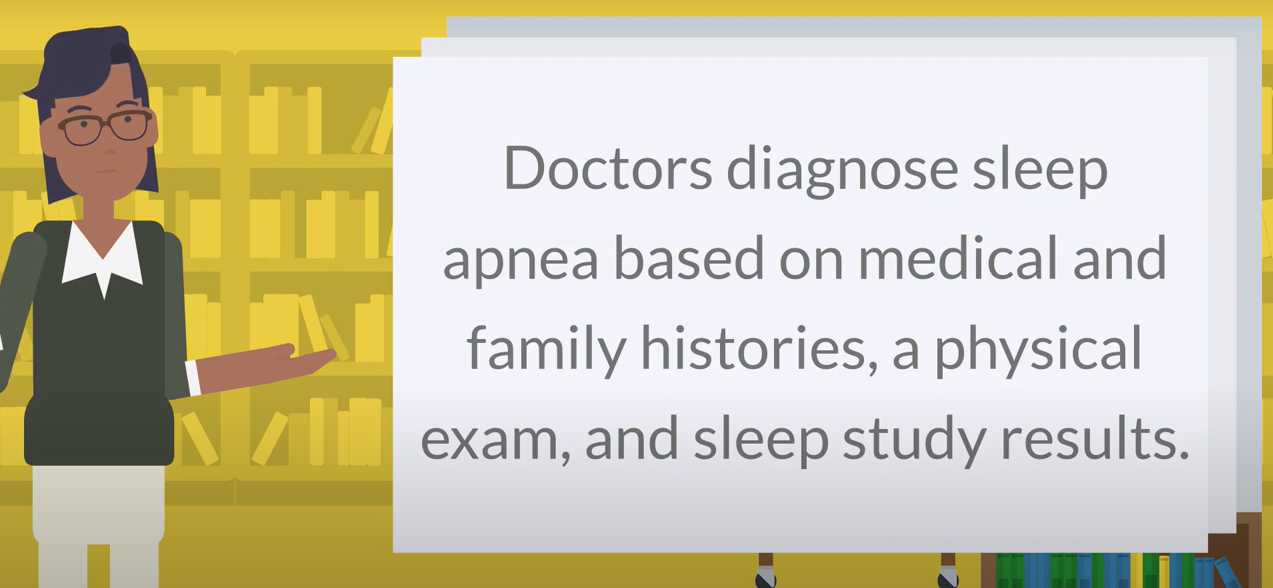

Sleep Apnea is one of the most common sleep disorders. As there are different types of sleep apnea, almost 1 in 4 people have it or experience it in their lifetime. Moreover, the severity of sleep apnea also varies. Let's help you self-diagnose sleep apnea so that you can seek the right help:
Loud snoring is one of the best signs of sleep apnea, primarily obstructive sleep apnea. But there's a specific way a person with sleep apnea might snore. Your bed partner can help you learn better if you have any.
Usually, a person will snore loudly and then stop breathing just to resume breathing after snorting or taking a quick breath. That's how you can tell if a person has obstructive sleep apnea.
Do you feel tired even after you think you slept well and through the night without any issues? No amount of coffee can cure your tiredness. Moreover, you find yourself having difficulty concentrating, and your memory is foggy. Often, you also get easily irritable because of your tired brain.
If you also feel like you can sleep at inappropriate times without any issues, it is possible to have sleep apnea.
Morning headache is one of the leading signs of sleep apnea. It can be obstructive sleep apnea or central sleep apnea. But the reason behind it is the low blood oxygen levels after waking up. Your body's respiratory system didn't work optimally, and your brain didn't receive oxygen. So now, after waking up, you're getting a headache.
However, make sure that it isn't because of dehydration or caffeine withdrawal before you jump to a conclusion.
Do you often wake up with a dry mouth? Maybe you wake up with a sore throat or pain in the throat area. If that's the case, there is a high chance that you have obstructive sleep apnea.
After all, your throat muscles might have gotten weaker, or there could be nasal congestion forcing you to breathe through your mouth, leading to a dry mouth or sore throat.
People with any kind of sleep apnea often end up with high blood pressure, especially throughout the night and after waking up. If you don't know how to check it, you can try smartwatches that can help you diagnose.
If not, then invest in a Blood Pressure Checking Machine to see if you have this issue. Then you might be at risk of developing obstructive sleep apnea or central sleep apnea.
Do you face nighttime sweats, or do you toss and turn a lot during your sleep? If you face difficulty staying asleep even in deep sleep stages, you might have sleep apnea. An overnight sleep study can help you learn more about your sleep apnea.
If it is better to visit a sleep specialist to get sleep apnea diagnosed to understand whether you have central sleep apnea or obstructive sleep apnea. Treating sleep apnea often begins with focusing on losing weight and improving lifestyle.
If that doesn't work, then continuous positive airway pressure treatment (also known as CPAP therapy) might be prescribed. If you have central sleep apnea, they might prescribe a different type of CPAP machine, like BiPAP or APAP, or even supplementary oxygen.
Atrial fibrillation is also quite common. And if the oral appliances, sleep medicine specialist, and maintaining a healthy weight fail, then you might have to undergo a surgical procedure. But that's usually needed for severe OSA.
Untreated sleep apnea can lead to serious complications, and daytime drowsiness and other warning signs are just the beginning. You may end up with a stroke or congestive heart failure.
It is also important to note that poor sleep increases risk factors of other health consequences. However, it is also true that people that are suffering from some form of a medical condition, especially related to heart disease or brain failure, often develop central sleep apnea or at least symptoms of sleep apnea. Therefore, thorough studies might be required.
Sleep apnea is a common sleep disorder. We have tried to list down all the common symptoms, from sleep apnea snores to trouble sleeping, breathing problems and trouble concentrating. If you also have underlying medical conditions, then it becomes even more important to get diagnosed.
Leave a comment